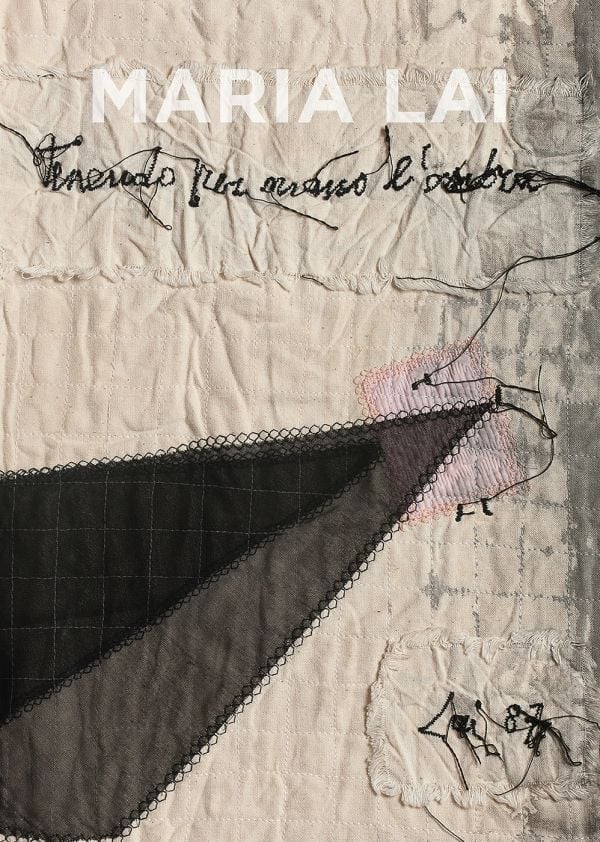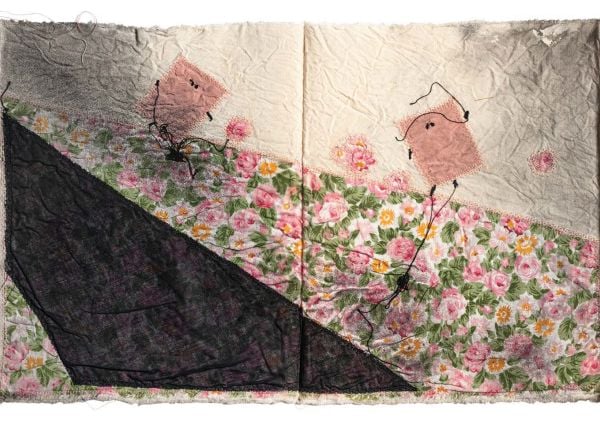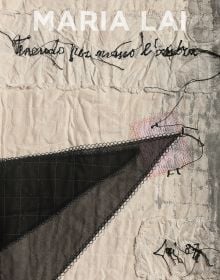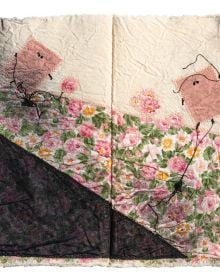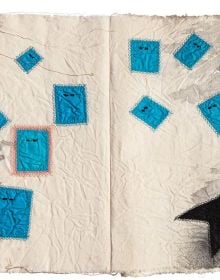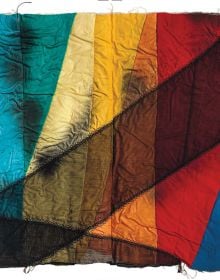Maria Lai: Holding the Shadow by the Hand
- Maria Lai saw fairy tales as a way to connect with the public and a metaphor for art itself
- Lai's fairy tales go beyond children's stories, offering deep reflections on life and humanity
- Holding the Shadow by the Hand explores accepting one's shadow, not as a negative aspect, but as a necessary part of oneself
Maria Lai always had a special relationship with fairy tales. She considered them a metaphor for art and a way of communicating with the public in a simple, straightforward way. Starting in the 1980s, fairy tales became central to her art. Tenendo per mano il sole, Tenendo per mano l’ombra, Curiosape and Maria Pietra, are her most famous “sewn fairy tales” – books created by the artist using castoff textiles.
Maria Lai’s fairy tales are not merely children’s stories, but profound reflections on life and what it means to be a human being. They are often inspired by Sardinian myths and legends, to which the artist gives a personal twist, adding autobiographical details and philosophical reflections.
This edition of Tenendo per mano l’ombra is a printed version of Maria Lai’s 1987 tale. The original consists of fabric pages sewn together and collages of dyed textiles, on which the artist has embroidered geometric figures, yarn and other materials. The fairy tale tells the story of a human being (and his double) who must learn to accept shadows, the dark part of the world and of himself. The figure’s shadow, in Maria Lai’s fairy tale, is not a negative element to be rejected, but an integral part of his personality. To live an untroubled and complete life, one must learn to accept and live with it.
Elena Pontiggia’s concluding essay accompanies the reader in a fascinating page by page interpretation of the fable, and discusses Lai’s artistic and stylistic approach in the context of an extensive network of philosophical, literary and artistic references: from Kant and Manzoni to Klee and Malevič.
Text in English and Italian.
- Publisher
- 5 Continents Editions
- ISBN
- 9791254600849
- Published
- 31st Oct 2024
- Binding
- Hardback
- Territory
- World excluding Italy and France
- Size
- 325 mm x 230 mm
- Pages
- 60 Pages
- Illustrations
- 20 color
Distributed by ACC Art Books
Our Catalogues
Please log-in or create an account to see your recent items.
